The BCU calls on Parliament to refrain from repressive amendments to the CPC
The BCU adopted a statement regarding the draft amendments to the Criminal Procedure Code (draft law no. 5490).
"Analysis of the draft law provides a reasonable basis for asserting that, if adopted, it will create conditions for the elimination of the professional legal assistance during the preliminary investigation. The adversary principle becomes a purely declarative, as full "domination" of the prosecution is expected during the preliminary proceedings. The objectives of the draft law, namely “the improvement of mechanisms of ensuring the tasks of criminal proceedings”, have nothing to do with the repressive nature of its main provisions", - stated the BCU.
In the BCU opinion, the draft law directly contradicts Articles 8, 19, 29, 59, 62, 63, 64, 131-1 and 131-2 of the Constitution of Ukraine and Ukraine’s European commitments on human rights. "The proposed changes are dangerous signs of destruction of humane democratic legal framework of the criminal procedure, which in return will be accompanied by massive violations of human rights and fundamental rights in criminal proceedings", - referred the statement.
The BCU has called the VRU Speaker Andriy Parubiy and MPs to refuse re-inclusion of these provisions for the consideration of the draft law or to reject such legislative initiatives in case of their re-introduction.
The BCU motivated its position by the fact that authors of the draft law proposed a radical deviation from European standards, which are enshrined in the European Convention on Human Rights and judgments of the ECtHR. In particular, the legal community was concerned by proposals to transfer the opening of materials of criminal proceedings from the pre-trial investigation stage to the trial stage - the stage of preparatory proceedings. "In this way, a person effectively loses the opportunity, even at the last stage of preliminary investigation, to defend himself in person or through practical and effective professional legal assistance, including in terms of his/her acquaintance with the final suspicion and the possibility of rebutting it, as well as the right to appeal against the decisions, actions or omissions by the court, investigating judge, prosecutor, investigator, etc."- referred the letter to Parliament.
The BCU believes that this will limit equality of arms and parties’ freedom to submit their evidence to court, which will result in limitation of citizens’ constitutional right to defence. Thus, in accordance with Article 6 ECHR, the right to adversarial proceedings means the parties’ ability to get acquainted will all submitted evidence or comments and to comment on them in order to make a legitimate influence on the court decision.
Contrary to the constitutional provisions and European practice are also the provisions of the draft law, which propose to increase to 18 months the maximum period of detention for cases concerning particularly complex criminal proceedings instituted in respect of particularly grave crimes committed by organized groups or criminal organizations.
"The approach proposed by the legislator in the draft law concerning the increase of the maximum period of detention is contrary to the principle of legal certainty, because it is obvious that in the absence of the statutory definition of "particularly complex criminal proceedings", such an exception runs the risk of becoming the general rule, for the application of which it will be sufficient to formally note during the classification of a crime that it was committed by an organized group or criminal organization", - referred the BCU statement. In present conditions, the significant increase in the length of detention is not justified either, as it can only witness the intentions of the prolonged detention as a means of pressure or punishment for crimes, in which a person is suspected. One should not overlook the PACE Resolution 2077 (2015) of 01.10.2015 “Abuse of pretrial detention in States Parties to the European Convention on Human Rights”, in which the PACE, on the contrary, called on the ECHR States Parties to take measures to reduce instances of pre-trial detention, including also the limitation of the use of such measures as pre-trial detention for the purpose other than the administration of justice, and to release detainees currently held in detention in degrading conditions.
The BCU was also concerned by the fact that the draft law, in the absence of effective legal remedies in the CPC, opens unlimited possibilities for abuse by the prosecution of its right to re-submission of the indictment act to the court without appropriate correction of shortcomings. It is envisaged that the court will not have a right to return the indictment re-submitted by the prosecutor, and it is proposed that all shortcomings and omissions made by investigators and prosecutors will be shifted to courts, which in turn will undoubtedly negatively affect the quality of the trial.
The BCU statement also indicated that, in violation of the Basic Law, the draft law also proposes to extend the function of pre-trial investigation by prosecutors until November 2019, despite the fact that its relevant powers were removed from the Constitution of Ukraine.Popular news

Discussion
Why lowering the age of marriage lacks legal logic
Although until 2012 there was a provision in family law that allowed children to marry from the age of 14 under certain circumstances, its return to Ukrainian law would contradict international obligations and the logic of criminal law.

Self-government
A report on Ukrainian advocacy was presented in the European Parliament
Can a shadow report on advocacy replace the political framework of the Roadmap on the rule of law with demands for the restructuring of self-government? Where is the line between accountability and the seizure of institutions? And how can we respond to narratives with data rather than impressions?
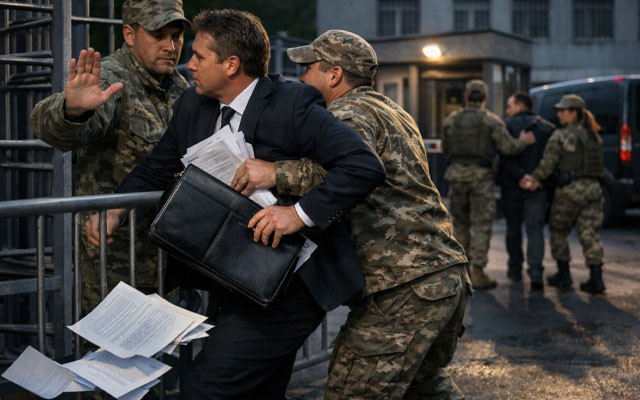
Guarantees of the practice of law
Proceedings opened following attack on advocate in Dnipro
The Committee for the protection of advocates' rights and guarantees of legal practice of the UNBA appealed to law enforcement agencies in connection with an advocate's report of an attack while performing his professional duties. The information was entered into the Unified Register of Pre-trial Investigations and a pre-trial investigation was initiated.
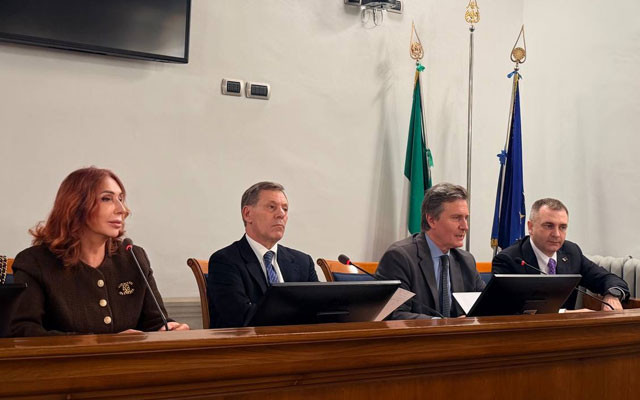
Interaction
«With us — to Europe»: Italian advocacy supports UNBA initiatives
On January 30, a meeting was held in Rome between a delegation from the Ukrainian National Bar Association and the National Bar Council of Italy (Consiglio Nazionale Forense, CNF) on the standards and practices of the legal profession and their significance for Ukraine's European integration process.
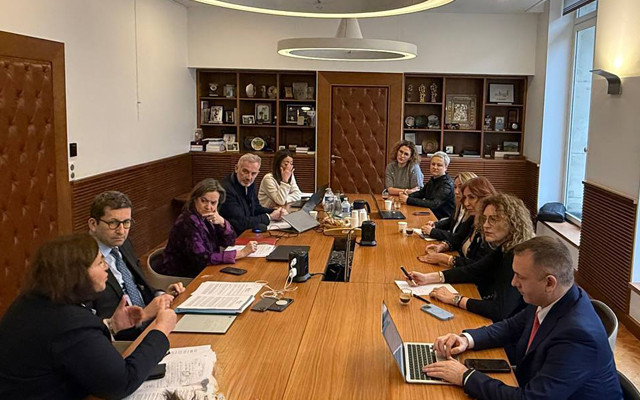
Interaction
France confirms cooperation with UNBA on reforms in the field of the rule of law
On January 29, a working meeting between representatives of the Ukrainian National Bar Association and the French National Bar Council (Conseil National des Barreaux, CNB) took place in Paris.
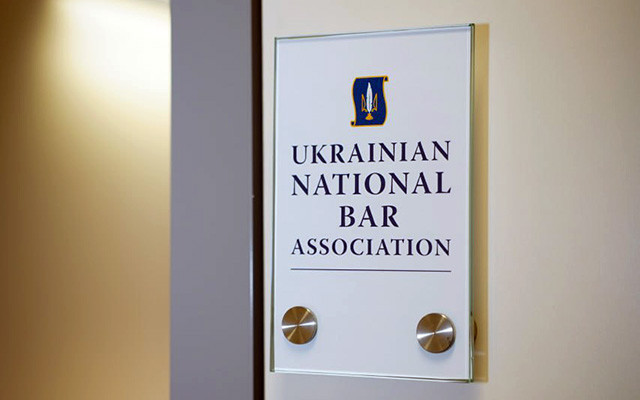
Abroad
UNBA office opens in EU capital
To strengthen the institutional presence of the Ukrainian advocacy community at the European level, an office of the Ukrainian National Bar Association has been opened in Brussels (Belgium), which will serve as a permanent platform for dialogue with European partners.
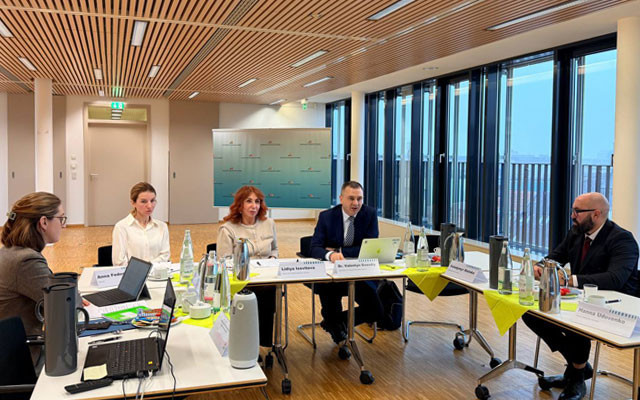
Interaction
UNBA and BRAK discussed European integration priorities and regulation of the profession
On January 26, a meeting was held between representatives of the Ukrainian National Bar Association and the German Federal Bar Association (Bundesrechtsanwaltskammer, BRAK).
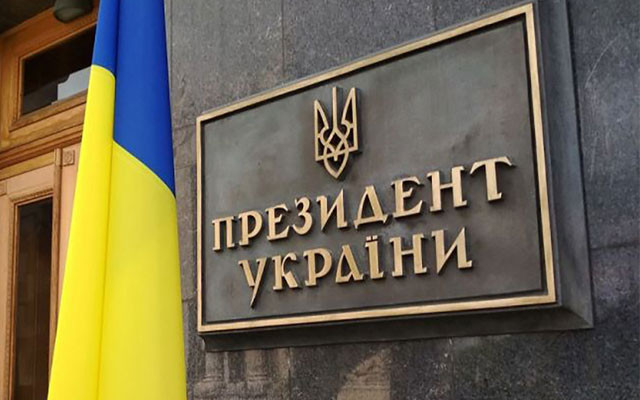
Guarantees of the practice of law
The President was urged to sign the law on strengthening guarantees for advocacy activities
The professional community of advocates called on Ukrainian President Volodymyr Zelenskyy to sign Law No. 4547-IX, which strengthens guarantees for advocates' activities, in particular by introducing liability for identifying an advocate with a client.
Publications

Volodymyr Matsko Extradition as a systemic form of rights violations

Victoria Yakusha, Law and Business The anti-corruption vertical cannot «take care» of the Bar as an institution, - acting head of the HQDCB

Censor.net Protecting advocates – protecting justice: addressing concerns about the new law

Ihor Kolesnykov A BRIEF SUMMARY REGARDING THE APPLICATION OF THE ORDER ON EXTENDED CONFISCATION IN LATVIA REGARDING FINANCIAL ASSETS OF…

Valentyn Gvozdiy WORKING IN A WAR ZONE

Lydia Izovitova Formula of perfection

Sergiy Vylkov Our judicial system is so built that courts do not trust advocates

Iryna Vasylyk Advocacy in the proclamation of Independence of Ukraine
